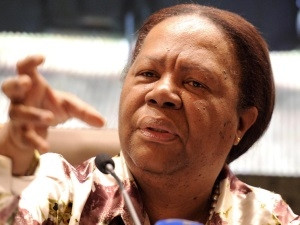
Science and technology minister Naledi Pandor on Saturday launched National Science Week at the University of the Western Cape.
The week, which stretches from 8 to 13 August, focuses on using science and technology to provide sustainable development and improved quality of life.
Over 3 000 learners from across the Western Cape attended the event and were entertained by flash mobs, dancers, acrobats and stage plays on science. Various science exhibitions were on display to put into practice what is taught in the classroom.
In a speech marking the occasion, Pandor said in the Department of Science and Technology (DST), the goal is to build a sustainable knowledge-intensive society.
Over the last 12 years, she noted, since its establishment as an independent department, the DST has created a number of major initiatives to increase basic scientific knowledge. Research undertaken in the centres of excellence and the research chair initiative are examples of how new scientific knowledge supports the department's national and regional development objectives, she added.
"The DST focuses on promoting science in specific fields - astronomy, energy, bio economy - in which we intend to become world leaders. We aim to catalyse vibrant, knowledge-based activities in South Africa that will be driven by the quality of the scientists we train, the quality of our research and development infrastructure, and the enablers we have put in place to turn scientific research into technology."
The minister pointed out that astronomy is the flagship science and technology success story of democratic SA. "Our astronomy programme is making a major contribution to the development of science capacities across the African continent. These efforts have already been rewarded by the development of a new impressive cohort of young, talented African scientists and engineers."
She noted the Square Kilometre Array (SKA) project is well-positioned to play a pathfinder role for a new generation of global science partnerships. With its strong current footprint of initiatives on the continent, the SKA will play a dynamic role in harnessing Africa's science and technology capacities to contribute to global growth and development, she said.
"All of these projects and programmes require decades of work and investment. Young people here today will also work on them, if your love of maths and science encourages you to study further at university so that you are able to help create a better Africa and a better world."
She pointed out that over the past 12 years, the DST has also invested in creating institutional structures to support innovation. The Technology Innovation Agency and National Intellectual Property Management Offices are two of the important entities that were created to fulfil the mandate of funding and protecting intellectual property respectively, she said.
"Our innovation system consists of science councils, universities, research agencies and business R&D units. The growth of this system is central to protecting current employment but also to creating new, sustainable jobs through the creation of new companies. International trends indicate that national growth increasingly depends on the creation of small and medium-sized companies, particularly at a regional and local level, and it's a priority in creating jobs.
"This is true in South Africa as well. Small and medium-size companies contribute 40% of our GDP and account for 60% of all employment. So this is where we should be focusing. And yet we know - according to Global Entrepreneurship Monitor - that our early-stage entrepreneurship is low in comparison with other similar countries."
Share